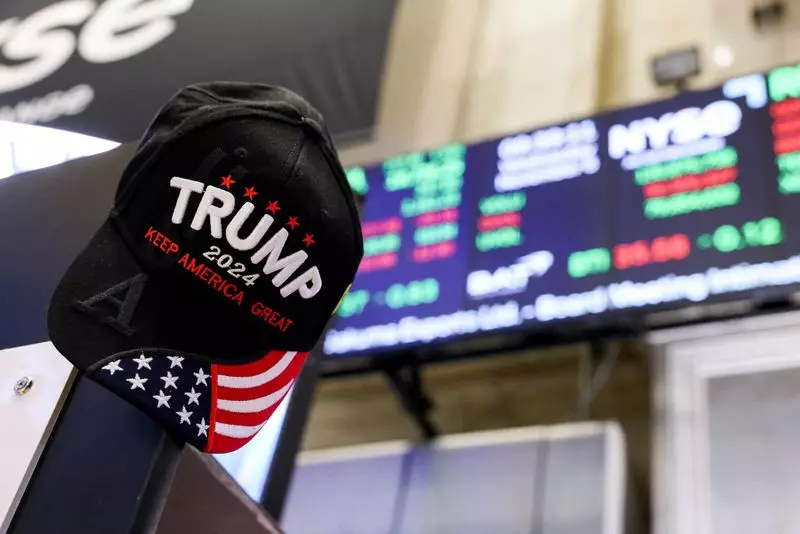The recent announcement of Scott Bessent as the President-elect Donald Trump’s nominee for Treasury Secretary marks a significant moment for the U.S. economy and financial markets. In light of ongoing concerns regarding the government bond market’s performance, Bessent’s nomination is being viewed as a potential catalyst for positive change. Investors are hopeful that his background and fiscal conservativism will help stabilize a market battered by uncertainty, particularly in relation to Trump’s ambitious economic agenda, which includes tax cuts and import tariffs.
The U.S. government bond market, particularly the benchmark 10-year Treasury yield, has been experiencing heightened volatility which culminated in a sharp increase in yields, now reaching a five-month high. This surge reflects investor anxiety over rising inflation expectations and a looming federal budget deficit that many anticipate will result from the proposed policies of the incoming administration. The absence of clarity regarding who would assume the Treasury role exacerbated market nervousness, prompting a selloff in Treasury securities—a situation that Bessent’s nomination aims to rectify.
Before Bessent’s nomination, there was notable apprehension regarding Trump’s selection for such a pivotal economic role. Financial professionals were anxious about the implications of appointing someone deemed unsuitable or overly aligned with isolationist economic policies. As noted by Michael Purves, CEO of Tallbacken Capital Advisors, the wait for Bessent has generated relief among investors who feared a potentially detrimental impact on Wall Street. The expectation is that Bessent’s fiscal conservatism will help foster a more disciplined approach to fiscal policy—an outcome that appears reassuring to the markets.
Scott Bessent, recognized for his distinguished career in investment, brings valuable insights into economic policy formulation. His advocacy for tax reform and deregulation focuses on stimulating bank lending and energy production, areas seen as vital for promoting economic growth. A recent opinion piece in The Wall Street Journal outlines his perspectives on fiscal responsibility, further reinforcing the belief that his approach could ease investor fears about rampant deficits.
Economists, such as Christopher Hodge from Natixis, are particularly optimistic that Bessent can bridge the gap between market realities and Trump’s more aggressive trade proposals. With concerns about potentially severe tariffs, including a suggested 60% tariff on Chinese imports, Bessent’s understanding of financial markets could serve as a counterbalance, reducing the risks associated with trade wars and protecting the broader economic landscape.
While Bessent’s nomination is a positive development, the challenges he will face as Treasury Secretary are formidable. Investors are eager to understand his views on managing U.S. government debt, especially given the rising interest rates tied to the federal budget deficit. Ed Al-Hussainy from Columbia Threadneedle highlights that scrutiny will intensify as markets seek assurance that the new Treasury Secretary can navigate economic downturns and external financial pressures effectively.
Moreover, the independence of the Federal Reserve remains a key area of concern. With Trump having expressed intentions to influence Fed decisions, there is anxiety regarding how Bessent will balance the need for central bank autonomy with the administration’s broader economic objectives. Investment managers, like Campe Goodman from Wellington Management, stress that maintaining Fed independence is crucial for bond market stability, emphasizing the delicate equilibrium Bessent must strive to maintain.
As Scott Bessent prepares to assume the role of Treasury Secretary, all eyes will be on how his economic philosophy and strategies unfold in the context of Trump’s administration. The bond market, having weathered a period of uncertainty, now awaits signals of fiscal discipline and pragmatism. With a legacy of financial expertise and a commitment to market-oriented policies, Bessent’s leadership may very well redefine the broader economic landscape in the United States, offering a glimmer of optimism in what has been a tumultuous financial climate. The upcoming months will be critical as investors and analysts seek clues about the administration’s economic trajectory and Bessent’s influence on its outcomes.

